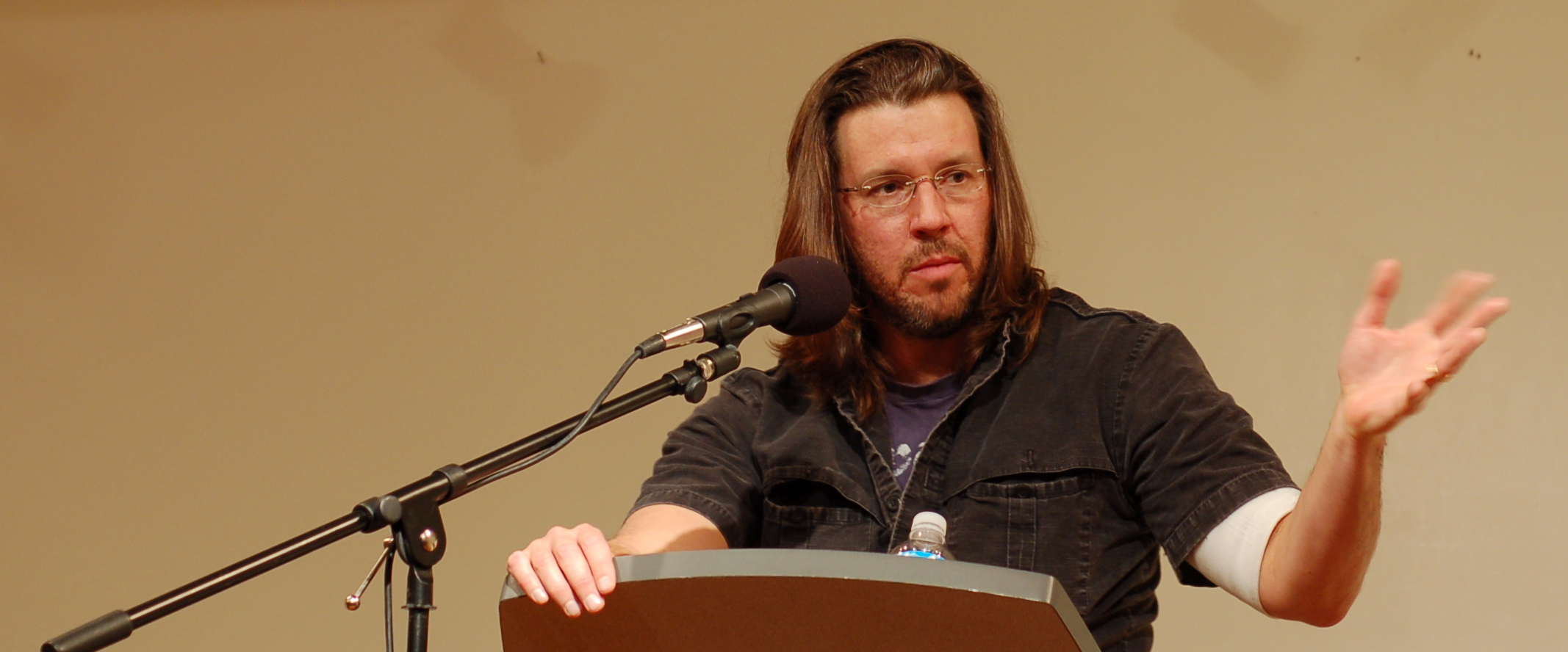When considering the best essayists from across the Atlantic, a number of names come to mind. David Sedaris and Gore Vidal (amongst others) might appear but, for me, the king will always be David Foster Wallace. Author of three novels (The Broom of the System, Infinite Jest and The Pale King, posthumously), he also wrote a great deal of non-fiction. He covered an incredible range of topics, from the beauty of watching Federer play tennis, to the ‘special effects pornography’ of Terminator 2, to my personal favourite: A Supposedly Fun Thing I’ll Never Do Again, which was first written for Harpers, and then published in the collection of the same name. For me, it’s one of the finest pieces of non-fiction.
“I have now seen sucrose beaches and water a very bright blue. I have seen an all-red leisure suit with flared lapels. I have smelled suntan lotion spread over 2,100 pounds of hot flesh. I have been addressed as “Mon” in three different nations. I have seen 500 upscale Americans dance the Electric Slide. I have seen sunsets that looked computer-enhanced. I have (very briefly) joined a conga line.”
This, the opening of A Supposedly Fun Thing… demonstrates perfectly what made him a great writer, and more than that (since it is not just great writing we celebrate here), what made him a fantastic non-fiction writer. In that one paragraph you have his incredible, mathematical mind, his attention to odd details, and his sense of humour. At his funeral, his close friend Jonathan Franzen perhaps put it best: “At the most microscopic level: Dave Wallace was as passionate and precise a punctuator of prose as has ever walked this earth.” But Franzen probably put it better when he said, “Dave nailed it like nobody else ever had.”
I would go further than that. David Foster Wallace nailed it not just like nobody else ever had, but also like nobody else since has matched. His obsession with language and the ways we use words is unmatched. He sat on the Usage Panel of The American Heritage Dictionary and compiled lists and lists of words and their meanings. You can find a collection of these words in his final essay collection, Both Flesh and Not (named after his rather apt description of Roger Federer).
In his introduction to The Best American Essays 2007 he outlined his love of non-fiction: He describes non-fiction as, “what a first-rate artistic mind can make of particular fact-sets” or the “near-infinity of ways to experience and describe an earthquake.” He celebrated the qualities of “clarity, precision, plainness, lucidity and the sort of magical compression that enriches instead of vitiates.” And he looked at how pieces “handle and respond to the tsunami of available fact, context and perspective.”
It’s that tsunami that Wallace navigates wonderfully; his work is packed so full of detail, fact and intricacies that sometimes it can seem like a vast sea. But Wallace is a perfect guide. Zadie Smith described his work as “difficult gifts.” That seems about right.
David Foster Wallace Essays, online at The Electric Typewriter
Daniel Carpenter is the co-founder of Bad Language and New Writing editor for the Blank Media Collective. He has been published on the Rainy City Stories and Metazen websites, as well as in the National Flash Fiction Day anthology alongside Ian Rankin and Ali Smith.

